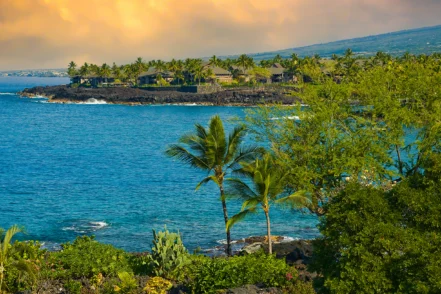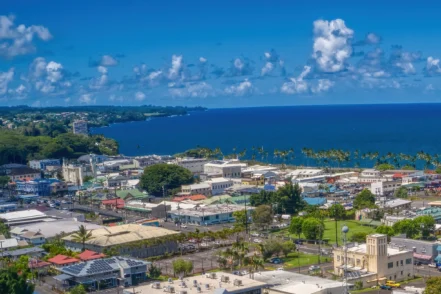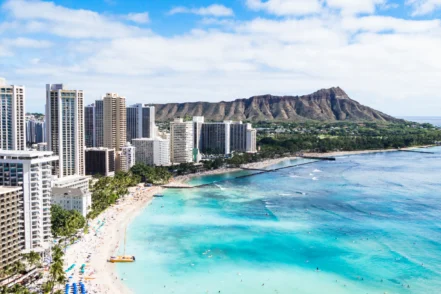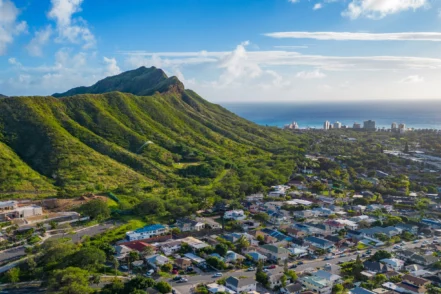About Women In Need Aiea
Looking for quality addiction treatment in Aiea, Hawaii? Women In Need Aiea offers a variety of services to help you on your road to recovery. From alcohol rehab to dual diagnosis treatment, we offer programs for all adults, men, women, and young adults. We also offer outpatient and sober living services, as well as intervention and aftercare support. Our cognitive behavioral and dialectical behavior therapies can help you address the underlying causes of your addiction, while our family and individual therapies provide support and guidance throughout your recovery journey.
Addiction Treatment Programs
Alcohol Rehab
Alcohol rehab in Hawaii can give you the tools and skills you need to reclaim your life and achieve long-term recovery. These treatment programs offer detox, inpatient treatment, and outpatient care. You may receive individual, group, and family counseling, peer support, and classes in essential life skills.
Dual Diagnosis
The best way for those with a mental health diagnosis and substance use concerns to reach recovery is to choose a dual-diagnosis rehab in Hawaii. Part of treatment will include managing your mental health symptoms so you aren’t tempted to use substances to self-medicate. This can be done without counseling and medication.
Adult Program
Adults face unique challenges, and an adult program in Hawaii can help them work on building their careers or parenting while overcoming addiction. These treatment programs offer detox, inpatient treatment, and outpatient care tailored to adults’ specific needs and challenges.
Men's Rehab
A men’s rehab in Hawaii addresses the recovery needs of male clients and gives them the tools they need to succeed. These treatment programs offer detox, inpatient treatment, and outpatient care tailored to the unique needs and challenges men face, which may include questions about career, fatherhood, family relationships, emotional vulnerability, and more.
Women's Rehab
Women’s rehabs in Hawaii address a wide range of substance use issues while also helping clients with gender-specific issues. These treatment programs offer detox, inpatient treatment, and outpatient care tailored to the unique needs and challenges of women. They generally also include life skills training tailored to the client’s needs.
Young Adult Rehab
Being a young adult can feel overwhelming. Choose a young adult rehab in Hawaii to get the support you need to overcome addiction and learn new life skills. These treatment programs offer detox, inpatient treatment, and outpatient care tailored to the unique needs and challenges of young adults.
Insurance Coverage
Medicaid
For those who qualify for Medicaid, using your coverage to pay for treatment in Hawaii can make rehab more accessible. Medicaid covers multiple levels of care, and you may have no out-of-pocket costs. However, you’ll need to choose a treatment center that accepts Medicaid.
Self-pay options
There are many ways to pay for rehab in Hawaii, including self-pay. You can have money sent electronically to the center, write a check, or use a medical loan. The payment details may vary depending on the level of care.
Financial aid
For those who qualify, using financial aid programs to pay for treatment in Hawaii can make rehab more accessible. Financial aid options help you manage the cost of treatment by allowing you to use a grant or scholarship. Aid may be available through the center or through community groups in your area.
Financing available
One option for paying for rehab in Hawaii is using financing options if they are available. You can use financing to pay for detox, inpatient rehab, outpatient care, and more. Options include grants, scholarships, and medical loans.
Medicare
One option for paying for rehab in Hawaii is using Medicare. Because Medicare plans may vary, be sure to find out what centers accept your coverage and to find out what out-of-pocket costs you might be responsible for.
Sliding scale payment assistance
For those who need help paying for rehab in Hawaii, a program with a sliding scale payment plan can make treatment more accessible. By providing information about your income and family size, you can qualify for a lower fee for detox, inpatient treatment, outpatient care, and more.
Levels of Care
- 1
Outpatient Rehab
In Hawaii, outpatient treatment allows you to live independently while getting the care you need to establish long-term recovery. Some of the elements of outpatient treatment include individual and group counseling, skill-building, relapse prevention, and help with essentials like employment and housing.
- 2
Aftercare Support
Even after you finish treatment, recovery is a challenge. Aftercare in Hawaii can help you find the resources and support groups you need. Aftercare may include ongoing counseling, additional life-skills training, peer support, and recovery support groups.
- 3
Sober Living Homes
Having a stable, substance-free living environment is vital for long-term recovery, and sober living in Hawaii provides that. Sober living may provide access to ongoing counseling, additional life-skills training, peer support, and recovery support groups.
- 4
Intervention Services
For those looking to help a loved one start the road to recovery, intervention services in Hawaii can provide vital support. Intervention may be uncomfortable, but sometimes it’s exactly what someone needs to face the truth about addiction and choose to get treatment.
Therapies
Cognitive Behavior Therapy
Many people benefit from cognitive behavioral therapy (CBT) in Hawaii because they gain tools to challenge unhelpful thinking. Learning which thought distortions you are most susceptible to can help you challenge unhelpful thoughts, create better interpretations of situations, and choose healthier responses.
Dialectical Behavior Therapy
Many people benefit from dialectical behavioral therapy (DBT) in Hawaii because they build confidence and learn healthy coping skills to manage stress and other triggers. Learning to develop a healthier mindset through stress management skills gives you the ability to create better circumstances in your life, and choose healthier responses to challenges.
Family Therapy
In Hawaii, family therapy allows you to understand how family relationships and patterns may have impacted your substance use. Everyone learns to have healthier relationships that support their recovery. Family therapy can mean addressing uncomfortable and challenging issues, but having a professional therapist facilitating the sessions makes it easier for everyone to share honestly and improve their relationships.
Group Therapy
In Hawaii, group therapy allows you to hear others’ stories, ask questions, and find others who relate to you. This support and accountability help you establish recovery. Some of the topics covered in group therapy include overcoming shame and guilt, improving communication, developing healthy coping skills, and building a support network.
Individual Therapy
During rehab in Hawaii, individual therapy allows you to receive focused, confidential care for specific issues. Individual therapy sessions generally last 60 minutes and may include discussing a specific issue, education about specific topics, or developing life skills.
Rational Behavioral Therapy
When you’re struggling with addiction in Hawaii, your actions and thoughts may not be rational. Rational behavior therapy can help you challenge your beliefs and adjust your actions accordingly. This therapy is a common part of evidence-based treatment programs, and may be a part of inpatient treatment, outpatient care, or both. Rational behavior therapy can be empowering as you learn to reframe unhelpful beliefs.
Trauma Therapy
Attending trauma-informed therapy in Hawaii is a way to overcome the symptoms of past trauma and develop better coping skills, helping you establish long-term recovery. Trauma-informed therapy is a normal part of evidence-based treatment programs and may be a part of inpatient treatment, outpatient care, or both. Methods include sharing of experiences, peer support, mindfulness practices, and more.
Accreditations
Location
Contact Women In Need Aiea
Top Drug Rehab Centers in Hawaii
-
 Hawaii
HawaiiThe Ohana Addiction Treatment Center
75-5915 Walua Road Kailua-Kona, Hawaii 96740
-
 Hawaii
HawaiiHawaii Island Recovery
75-170 Hualalai Road, Suite C 311-A Kailua-Kona, Hawaii 96740
-
 Hawaii
HawaiiHope Services Hawaii
357 Waianuenue Avenue Hilo, Hawaii 96720
-
 Hawaii
HawaiiBig Island Substance Abuse Council 297 Waianuenue Avenue
297 Waianuenue Avenue Hilo, Hawaii 96720
-
 Hawaii
HawaiiBobby Benson Center
56-660 Kamehameha Highway Kahuku, Hawaii 96731
-
 Hawaii
HawaiiThe Exclusive Hawaii Hakalau
31-631 Old Mamalahoa Hwy Hakalau, Hawaii 96710
-
 Hawaii
HawaiiLokahi Treatment Center Hilo
400 Hualani Street, Building 10-195-B Hilo, Hawaii 96720
-
 Hawaii
HawaiiHabilitat Kaneohe
45-035 Kuhonu Place Kaneohe, Hawaii 96744
-
 Hawaii
HawaiiHoomau Ke Ola
85-761 Farrington Highway, Suite 101 Waianae, Hawaii 96792
-
 Hawaii
HawaiiKu Aloha Ola Mau Honolulu
1130 North Nimitz Hwy, Suite C-302 Honolulu, Hawaii 96817
